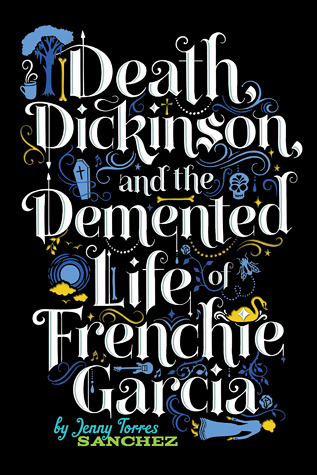The Day of the Dead is a Mexican holiday that takes place on November 1st (All Soul’s Day) and November 2nd (All Saint’s Day), and celebrates, even plays with, the dead. Its roots are a mixture of Orthodox Catholicism and pre-Hispanic traditions of prayers and material offerings. Catholics all over the world celebrate these two days, but Mexico takes it to another level. Instead of just celebrating the saints and martyrs, entire altars are built for deceased family members. There’s food and drinks and sugar skulls and singing. It’s like a big family reunion, only your grandmother’s ghost is invited as well. It is colorful and loud; the opposite of what you think of when visiting cemeteries.**
So, what does the Day of the Dead have to do with you, Zoraida?
Now, I’m a third-party observer here. Although, in Ecuador, they do make a purple drink called “colada morada” (made of some sort of blackberry and purple maize) specifically for this time of year. My Ecuadorian family is Catholic, but I’ve always considered myself a practicing agnostic (it’s not a real thing, but sure). I suck at memorizing prayers, and yet every time I pass a cemetery I cross myself. I don’t associate with any religion, and yet, I’ve always been drawn to this particular celebration.
It could be that I’m not drawn to the religious aspects of this celebration, but to the dead themselves. It’s a little macabre, I know, but hang with me here. Ever since I was little I loved ghost stories. I thought La Llorona (the weeping woman/Latina banshee figure) was real the same way most kids think the Easter Bunny is real. I sang to old salsa songs about skeletons (see blog post title). I am fascinated by death, and you know what? So are a lot of people who are not Catholic or Mexican.
What do you mean?
Well, go to your nearest book store and browse. How many bestsellers do you see featuring vampires and ghosts and zombies? I know, it’s not the same as a religious celebration honoring your dead loved ones. But I do believe that we are drawn to death and the undead, and all of the mystery it holds.
Then, think about other religions that have ceremonies/feasts to celebrate their dead. In Chinese culture, the seventh month is called “ghost month,” when the dead come to walk among the living*** In Korea, Chuseok is a holiday when people return to their ancestral hometowns.**** It’s like a combination of Thanksgiving and the Day of the Dead. And these are the only ones I’ve heard about. I can only imagine the others.
And what does this have to do with kidlit?
Loads! Look at these titles.
From twin sisters finding a way to contact each other post mortem, to a skeleton boy who makes friends with the living, to a young girl dealing with her grandfather’s death, to demigods conquering the physical manifestations of death, the Day of the Dead has made its way into our literature.
No matter what we believe in or where we come from, at the end of the day, we can all relate to loss. It’s sad and powerful and it connects us at a very basic level.
Do you celebrate the Day of the Dead? And if you don’t, do you have a similar tradition? Share it with us in the comments!
* http://www.youtube.com/watch?v=pezwkyaW51A Las Calaberas by Lisandro Meza
** The Skeleton at the Feast: The Day of the Dead in Mexico by Elizabeth Carmichael and Chloe Sayer
*** I first read this in House of Hades by Rick Riordan (it’s true).
**** http://www.allkpop.com/article/2013/09/a-detailed-explanation-of-chuseok-1#axzz2igWmLmCK






